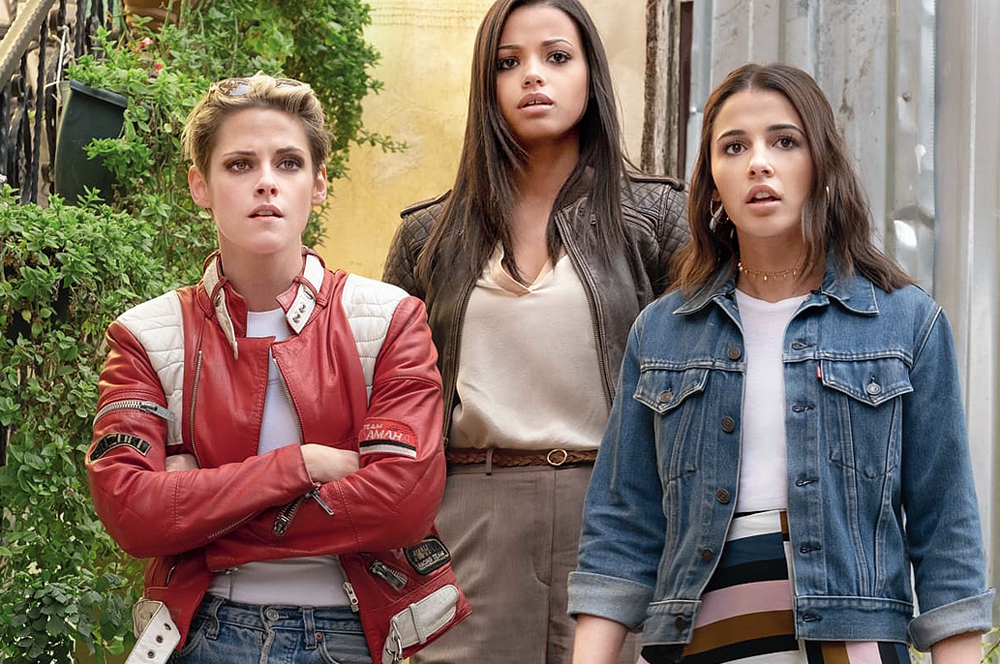Inthe interest of due diligence, I recently reread my review from 2000 of the first big-screen Charlie’s Angels. I opened that appraisal with a fast takedown and a sincerely posed question: “Of course, it’s terrible — but did it have to be this bad?”
Two decades later, I hopefully watched the new big-screen version of Charlie’s Angels, which turns out to be another egregious stinker. Perhaps that isn’t a surprise, though it serves as another reminder that you can’t overturn the master’s house simply by rearranging the furniture. You need to burn the whole thing down.
Widely derided when it first hit, the Charlie’s Angels television series (1976-1981) centered on three young women with fabulous hair — the breakout performer was the feathered Farrah Fawcett — who work as detectives for the enigmatic Charles Townsend. A heard but never-seen Prince Charming, Charlie (the patrician-sounding John Forsythe) rescued the women from their sexist police jobs and now runs them through a go-between, a buffoonish neuter named Bosley. Arriving toward the end of second-wave feminism’s most radical era, the show tried to capitalise on the women’s liberation movement while gleefully turning its stars into sexualised spectacles.
In some respects, the series was a vanilla version of those 1970s exploitation films in which braless women jiggle and kick their way into contradiction-riddled freedom. As in those flicks, the talent and humanity of the female performers — their presence, personality, charm -—helped offset or modestly challenge the degrading nonsense. In contrast with better movies of this type, Charlie’s Angels seemed particularly regressive, partly because it presented itself as a new fairy tale. “Once upon a time,” Charlie said in the opening credits, “there were three little girls who went to the police academy.” He “took them away from all that,” so that they could fight crime in bikinis.
The writer-director Elizabeth Banks has chucked the bikinis, but not the foundational fairy tale that women’s power is a matter of low stakes, cute outfits and sassy you-go-girl attitude. The seraphs are still caricatures of empowerment, here played by Kristen Stewart (the cutup), Naomi Scott (the brainiac) and Ella Balinska (the stoic). The stars are appealing and seem to be having a fine time delivering the bad dialogue amid punches and location changes. For all the globe-trotting, though, the whole thing looks generic (the product placements turn the world into a mall), which wouldn’t matter if the story itself had something going for it beyond forced quips and casual violence.
However absurd the premise, you nevertheless need to believe that these women could do damage, pose a real threat, and not just physically. Banks leans on the laughs and silliness, the glitter and glamour, all while setting the Angels against cartoonish male villainy (Jonathan Tucker plays a menacing exception), which becomes a metaphor for patriarchal power. Banks wants to fight a righteous fight. But she is selling stale goods in which adult women spout girl-power cliches and conform to norms that make it very clear what kind of heroines still get to fly high: young, thin, beautiful, perfectly coifed, impeccably manicured and profoundly unthreatening.











